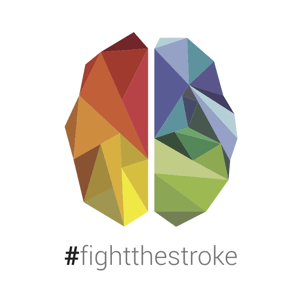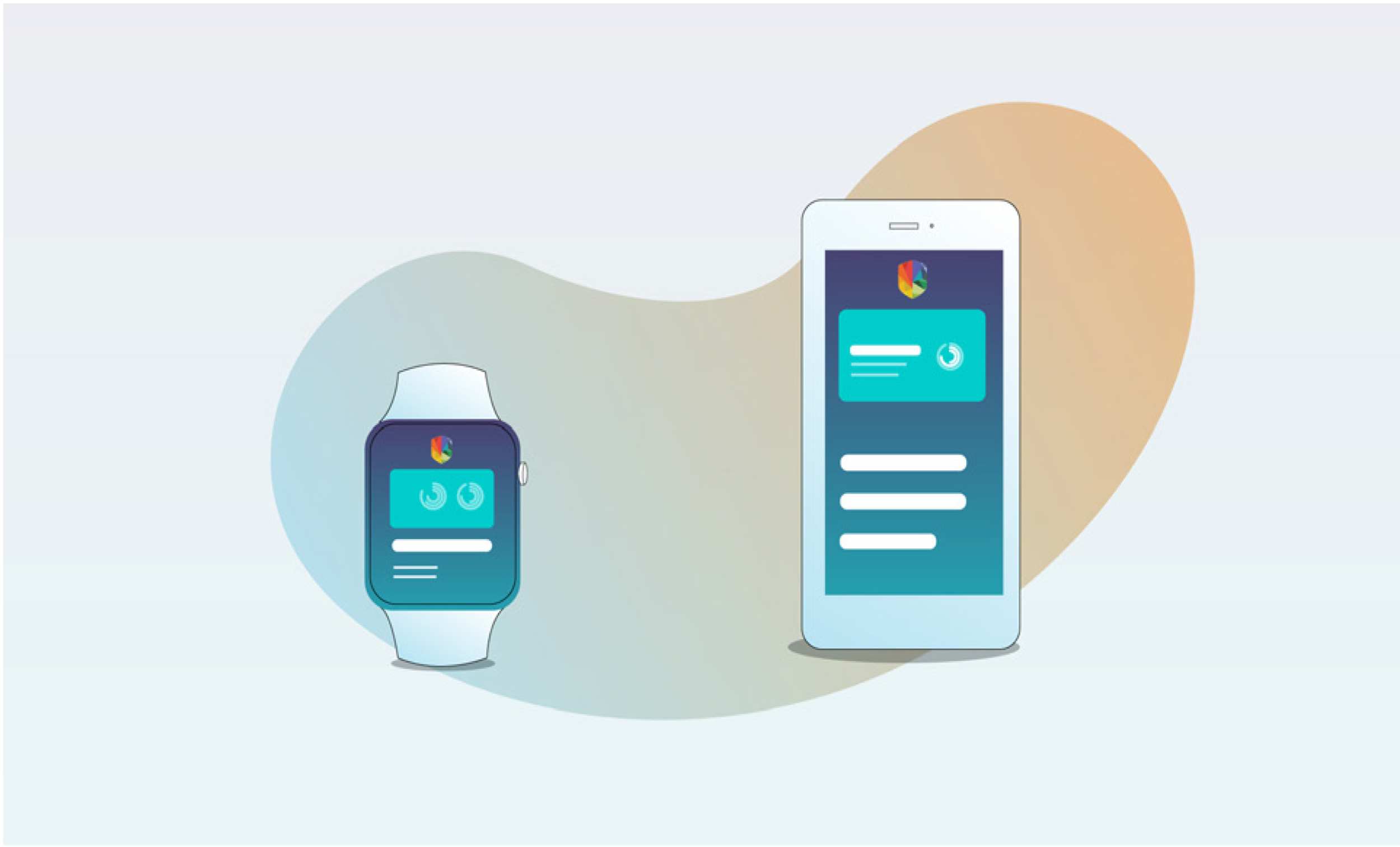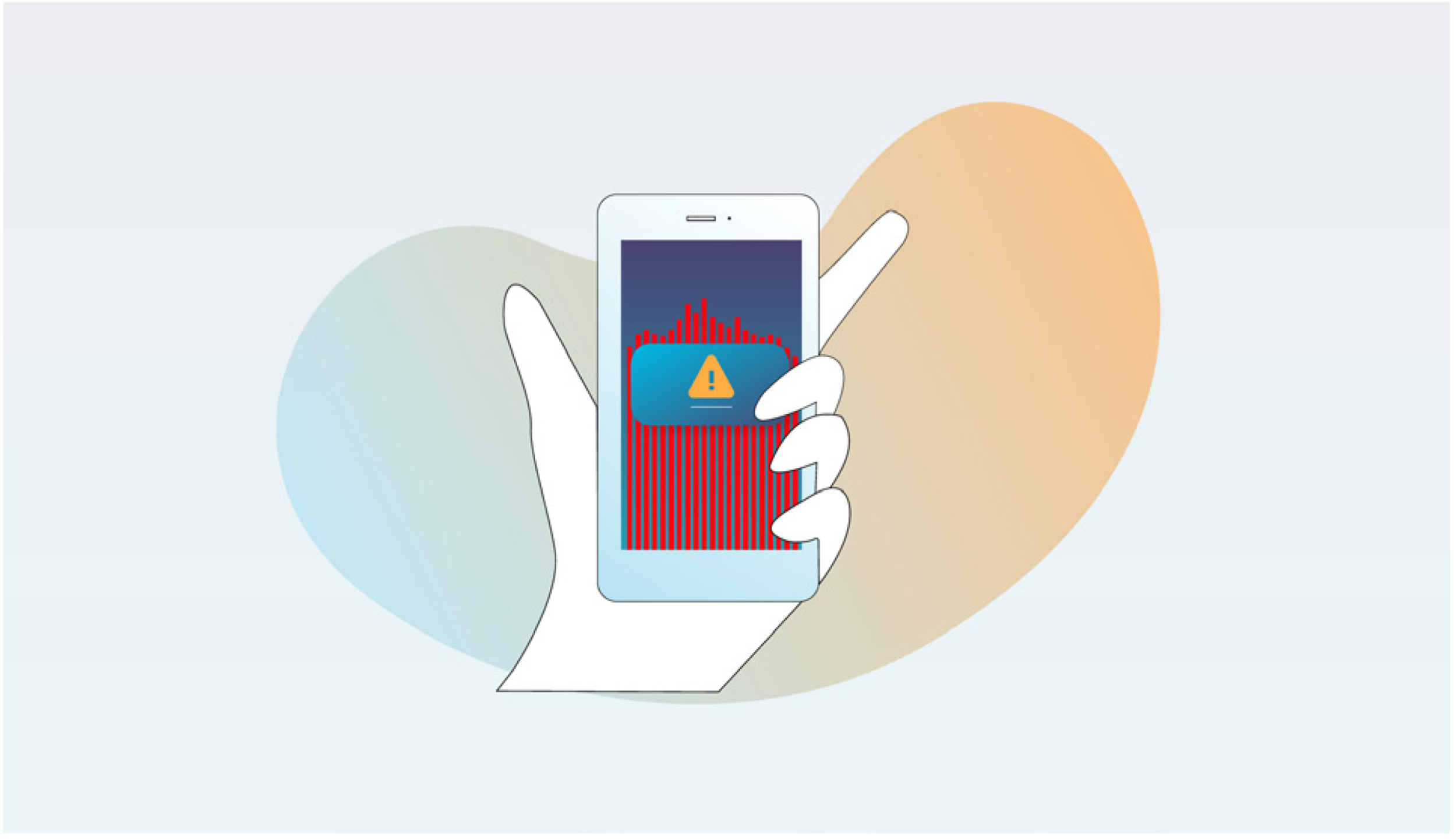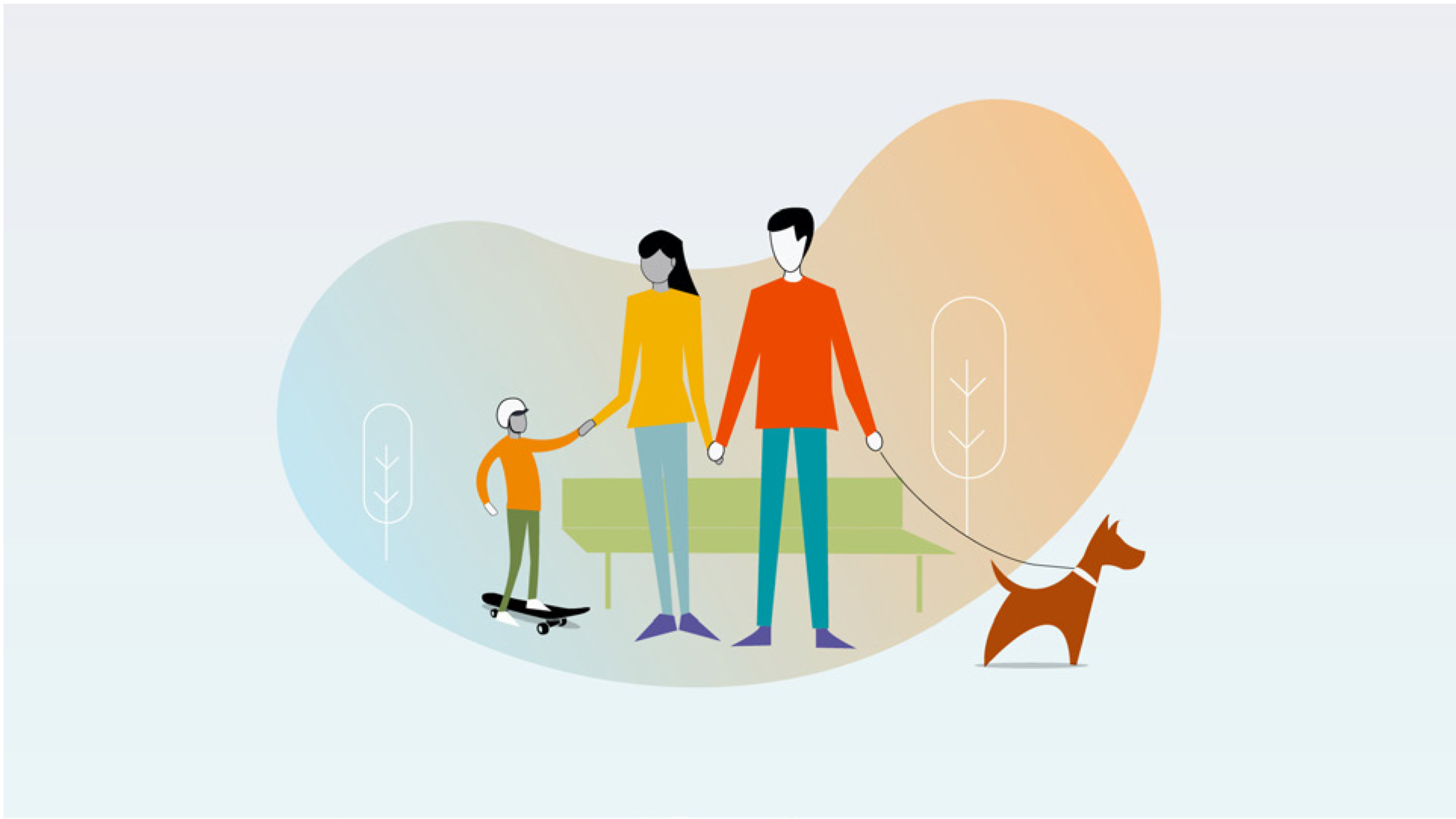MIRRORHR HELPS FAMILIES TO MANAGE EPILEPSY
Description: Stylized illustration of the MirrorHR solution running on a phone and a smart clock with MirrorHR logos, #fightthestroke, PBSF, Microsoft, the link to this website www.mirrorhr.org plus QR Code for downloading it from the Apple App Store
MirroHR Epilepsy Research Kit for Kids it’s free, easy to use, private, and available in 21 languages.
Some features, like alarms, require a paired Apple Watch.
What users say
“Your app is great, i like the simplicity and all makes sense.”
"I have become MirrorHR-addict: I fall asleep more calmly, knowing I have a technological ally. Every night, I see the heart rate trend in real-time and periodically download the data to calculate the average heart rate, correlate it to events, and understand if there are stressful things that worsen the picture. I also find the application very useful for monitoring the post-critical phase in the dark and even if he is asleep. In the morning, I consult the chart, and at a glance, I realize if it was a restful or turbulent night. And then I can write everything down and build a very detailed diary. For me, MirrorHR is a great tool."
"I started using the app not having the Apple Watch yet, and it was already a useful daily tool that I used to mark the various seizures and symptoms. You can write notes or, if you prefer, record your report of the day and the application writes automatically !!! Then we also took the Apple Watch, so I started using the application even at night, discovering that my daughter had minimal seizures that I would never have noticed. When my daughter goes to bed, she is delighted to put the watch on because then she has a lot of fun asking questions or asking Siri the time and then because I put a little dog as a dial that I told her guards her.”
“Really thankful to have this app. Support is there daily. Bugs constantly tweaked and updated to make the user experience better. Have tried paid apps and they offer little support and only monitor tonic clonic. MirrorHR gives my family more peace of mind when it comes to SUDEP. Thank you”
“This app has brought peace back to our nights! We have a child who suffers from generalized seizures. Our concern is SUDEP (Sudden Unexpected Death in Epilepsy). Statistically, it doesn't happen often, but there are such tragic cases, unfortunately also among children. The app monitors our child's pulse (at night) via Apple Watch and iPhone and can transmit the data to other iPhones in the same WiFi network if desired. You set an upper and lower pulse limit. As soon as this is reached, an alarm goes off and wakes us. Additionally, the app also reports a connection interruption, which can unfortunately occur. This can then be reestablished, which only takes 20 seconds. Everything has been reliable so far. Additionally, as a "defined caregiver" outside of the WLAN, you can receive notifications of special events (e.g., seizure, medication intake, aura) via the internet. This allows you to keep track of events even over hundreds of kilometers. We would like to thank the developers and Roberto for this app. It enables real-time pulse monitoring and gives you peace of mind with a quick glance at the iPhone screen during the night, without the need to get up and go to the child's room. The app is free and has restored much normality to us.”
JOIN THE MIRRORHR COMMUNITY AND TAKE PART IN ITS GLOBAL DEVELOPMENT!
We welcome and are looking for:
1. ANY FAMILY THAT HAS A CHILD WITH EPILEPSY, AN IPHONE, AND AN APPLE WATCH.
2. DOCTORS AND RESEARCHERS.
3. DEVELOPERS, DATA SCIENTISTS, BUSINESS ANALYSTS, VOLUNTEERS.
4. DONORS/INVESTORS
Description: Graphic showing MirrorHR running on several smart phones and a smart watch
Over 50 million people worldwide live with epilepsy. It is the fourth most common neurological disorder, characterized by unpredictable convulsions and causing other health complications, affecting people of all ages. A wide range of seizures is available and the medications for effective control vary from person to person. Public misunderstanding of epilepsy can cause emotional and health problems often worse than convulsions. Sometimes a person with epilepsy dies during or after an attack for no obvious reason. This sudden death in epilepsy (SUDEP) is rare and in some cases can be preventable. The risk of premature death in people with epilepsy is up to three times higher than in the general population. In low and middle-income countries, early death among people with epilepsy is significantly higher than in high income countries.
While seizures in epilepsy may be related to a brain injury or family tendency, the cause is often completely unknown. The word "epilepsy" does not indicate anything about the cause of the person's seizures or about its severity. Many people with epilepsy have more than one type of seizure and may also have other symptoms of neurological conditions. Sometimes EEG tests (electroencephalogram), clinical history, family history and perspectives are similar in a group of people with epilepsy. In these situations, their condition can be defined as a specific epilepsy syndrome. However, not everyone has a specific identifiable epilepsy syndrome. For example, 1 in 4 with cerebral palsy and 1 in 5 with autism have epilepsy and several other disabilities.
Although the symptoms of an attack can affect any part of the body, the electrical events that produce the symptoms occur in the brain. The location of the electrical event, how it spreads, how much of the brain is affected and how long it lasts, all these indicators have profound effects. These factors determine the characteristics of an attack and its impact on an individual's health and quality of life. Having seizures and epilepsy can affect safety, relationships, work, driving and more.
THE CHALLENGE
Epilepsy research is fragmented and hospitals and physicians are limited by the care often provided in silos and the lack of unified access needed for analysis and trending of large scale data. Each patient is unique and families are often forced to choose between conventional treatment pathways that are widely accepted but may not necessarily respond better to the patient's needs, compared to taking high risks with untested studies and ideas that might work better.
Parents and their caregivers are under constant stress, anxiety and confusion with difficult questions, such as: What if my darling has an attack while he sleeps? What if my loved one is alone and has an attack? What are the triggers that increase the risk of seizures? What happens if you forget to give/take medication? What is the impact of diet, drugs, stress, routines and the environment on seizures? What if they're not sure it's a serious sequel to the crisis or not? Today there are no clear answers to these questions.
Ultimately, this stressful situation has an impact on the life, health and well-being of all. Family life is adapted to meet the needs of the patient, this can involve challenging life decisions such as modifying or losing employment, moving to a new place, major financial implications, depression, sleep deprivation and, in some cases, loss of primary relationships, and divorce.
WATCH AND SHARE MIRRORHR SHORT VIDEOS
FIGHTTHESTROKE AND MICROSOFT
MirrorHR is the Microsoft Hackathon Grand Prize Winner!
“Congratulations to the grand prize winners of our hackathon! Their talent, ingenuity and passion have the potential to make an enormous impact on the lives of parents whose children suffer seizures.” - Satya Nadella, Microsoft’s CEO
Text-only version of the messages in the cover images:
The new MirrorHR app helps families manage epilepsy: Candidates to participate in the beta test!
MirrorHR helps caregivers to act quickly when crises begin to occur at night: candidates to participate in the beta version test
Limit racing in the emergency room: Try the new MirrorHR app for epilepsy!







